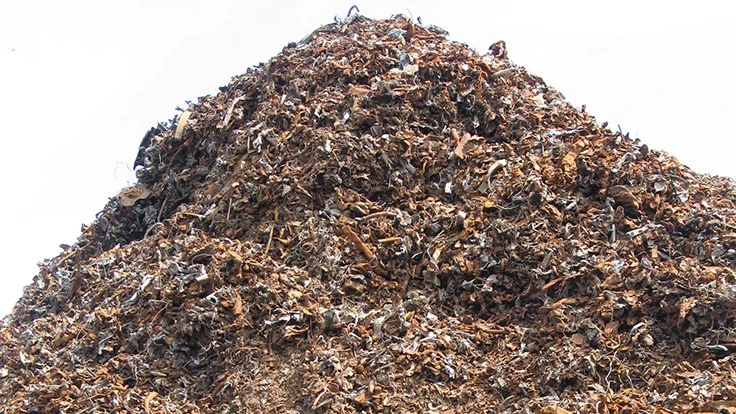
Recycling Today archives
Norfolk, Virginia-based Greenwave Technology Solutions Inc. says its second auto shredder and downstream system are scheduled to begin operations during the third quarter of 2022. Greenwave’s subsidiary, Empire Services Inc., will operate the shredder.
Greenwave says the second shredder will process cars, household appliances and industrial products, while the downstream system will increase recovery yields of copper, aluminum, brass, steel and other metals. According to a previous report from the company, the system will allow it “to double its processing capacity, which could result in its dealer scrap product line generating an additional $8 million to $15 million in revenue over the next 18 months.”
The shredder and downstream system are scheduled to come online in the summer and fall of 2022, respectively, and are expected to double the company’s processing capacity while increasing its profit margins.
“We have made significant investments in our infrastructure this year to support the planned expansion of the number of scrap metal yards we operate through both organic growth and potentially acquiring independent, profitable facilities,” says Danny Meeks, chief executive officer of Greenwave. “Since founding Empire in 2004, we have successfully navigated several economic climates and believe Greenwave is positioned to continue generating positive operating cashflows while growing its revenues through a likely recession. We’d like to thank all of Greenwave’s shareholders for their continued trust in our company and look forward to keeping you updated on our progress.”
Greenwave has not mentioned where its planned second shredder will be. Empire currently operates 11 metal recycling facilities in Virginia and North Carolina.
Latest from Recycling Today
- Sortera Technologies ‘owning and operating’ aluminum sorting solutions
- IDTechEx sees electric-powered construction equipment growth
- Global steel output recedes in November
- Fitch Ratings sees reasons for steel optimism in 2025
- P+PB adds new board members
- BlueScope, BHP & Rio Tinto select site for electric smelting furnace pilot plant
- Magnomer joins Canada Plastics Pact
- Out of touch with reality





